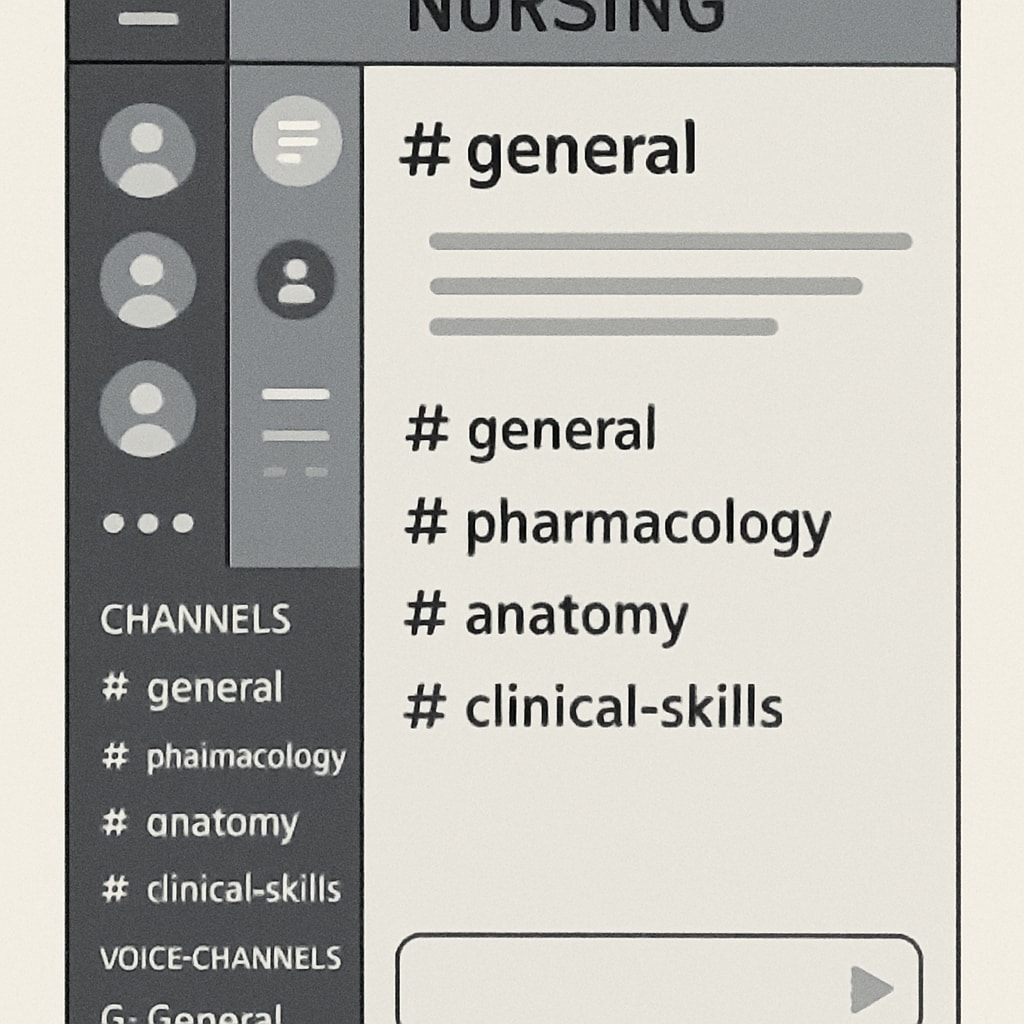Nursing students often face rigorous coursework and demanding schedules that require effective study habits. Joining study groups and utilizing platforms like Discord can transform the learning experience by fostering collaboration, resource sharing, and mutual support. In this article, we will explore the benefits of digital study communities, especially for nursing students, and provide actionable strategies to build and maintain these groups.
The Importance of Collaborative Learning for Nursing Students
Collaborative learning has long been recognized as a powerful educational approach. For nursing students, study groups offer the opportunity to discuss complex topics, clarify doubts, and exchange diverse perspectives. This peer-to-peer interaction often leads to deeper understanding and retention of material, which is crucial for succeeding in a demanding field like nursing.
Moreover, platforms like Discord have revolutionized how study groups operate. By providing tools for voice and video calls, chat channels, and file sharing, Discord enables students to collaborate seamlessly, even across different time zones. As a result, nursing students can create dynamic learning environments that are both flexible and effective.

How Discord Transforms Nursing Study Groups
Discord, initially designed for gamers, has evolved into a versatile platform for communities of all kinds, including academic groups. Nursing students can leverage Discord to create study servers where they can:
- Organize subject-specific channels to discuss topics like anatomy, pharmacology, and patient care.
- Share resources, such as lecture notes, textbooks, and videos.
- Host live study sessions using voice or video channels.
- Set up bots to manage schedules, quizzes, and reminders.
For example, a pharmacology study group could create a dedicated channel to post drug classifications and mechanisms of action. Members can then quiz each other using interactive bots or schedule group discussions before exams. This level of organization ensures that everyone stays on track, even during busy weeks.

Practical Tips for Building and Sustaining Effective Study Groups
While the idea of forming a study group is appealing, its success depends on careful planning and commitment. Here are some practical tips for nursing students looking to create or join study groups:
- Define Clear Goals: Establish what the group aims to achieve, whether it’s acing exams, mastering clinical skills, or preparing for licensure tests.
- Set Ground Rules: Agree on expectations regarding attendance, participation, and workload sharing to ensure accountability.
- Use Technology Wisely: Utilize tools like Discord bots for scheduling and collaborative platforms like Google Docs for shared note-taking.
- Encourage Inclusivity: Create a welcoming environment where everyone feels comfortable sharing their thoughts and questions.
- Evaluate Progress: Regularly assess the group’s effectiveness and make adjustments as needed to stay aligned with goals.
By following these steps, nursing students can build study groups that not only improve academic performance but also foster lasting professional relationships.
Why Digital Study Communities Are Here to Stay
The COVID-19 pandemic accelerated the shift to digital learning, highlighting the importance of online study communities. Platforms like Discord have proven to be invaluable for students navigating remote education. Even as in-person classes resume, the convenience and accessibility of digital study groups make them an essential tool for modern learners.
For nursing students, these communities offer a way to stay connected, even during clinical rotations or internships. The ability to access a supportive network of peers at any time ensures that students can tackle challenges collaboratively, no matter where they are in their academic journey.
In conclusion, embracing study groups and Discord communities can significantly enhance the learning experience for nursing students. By leveraging these resources, students can achieve academic success while building skills that will serve them throughout their careers.
Readability guidance: This article uses short paragraphs, lists, and clear transitions to maintain engagement. Passive voice and long sentences have been minimized to improve clarity. Images have been included as placeholders to visually support the content.


